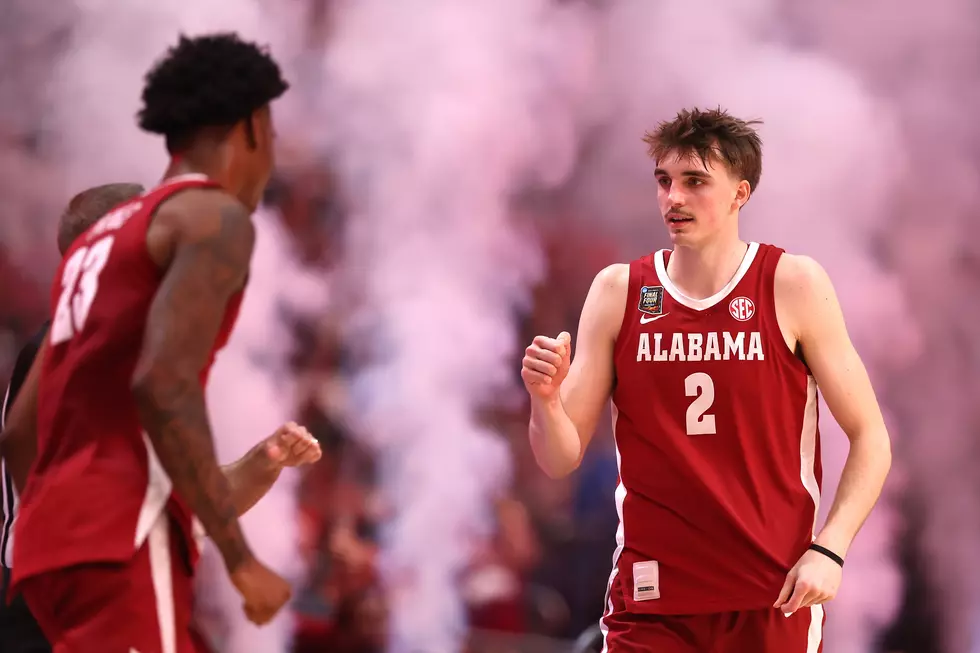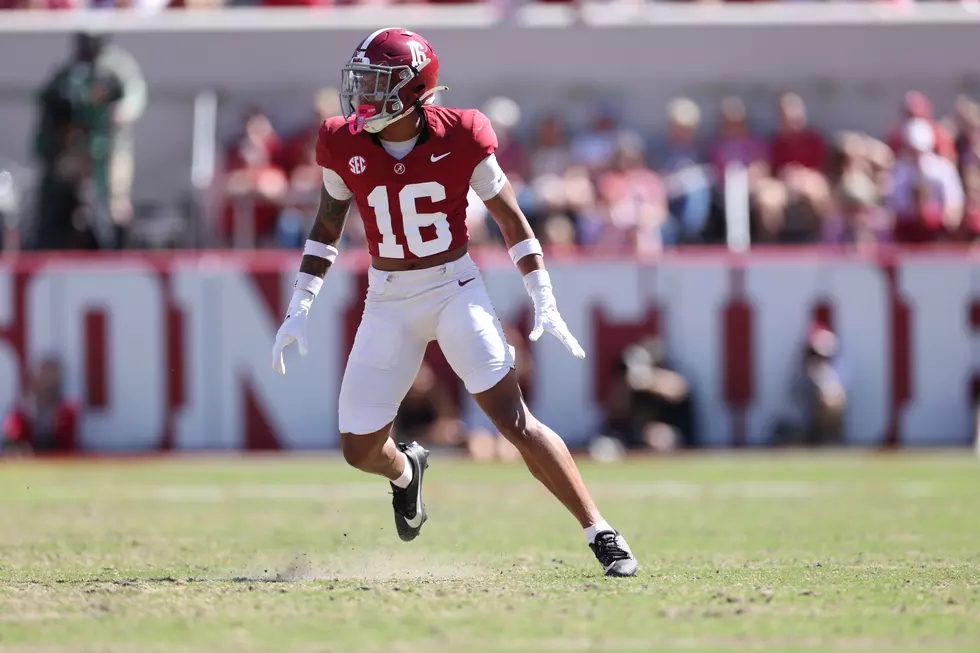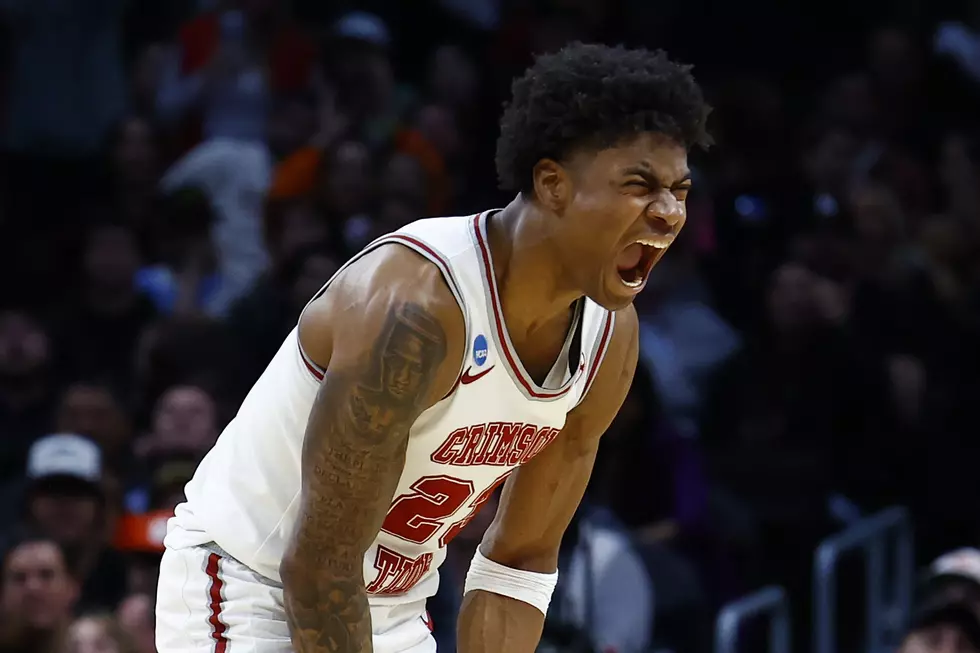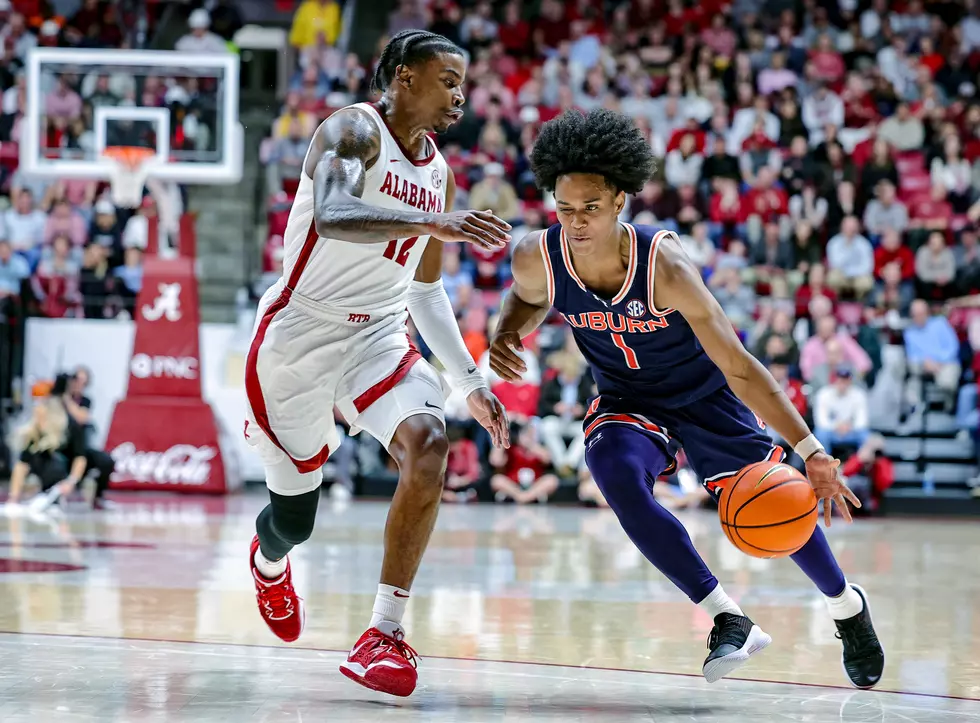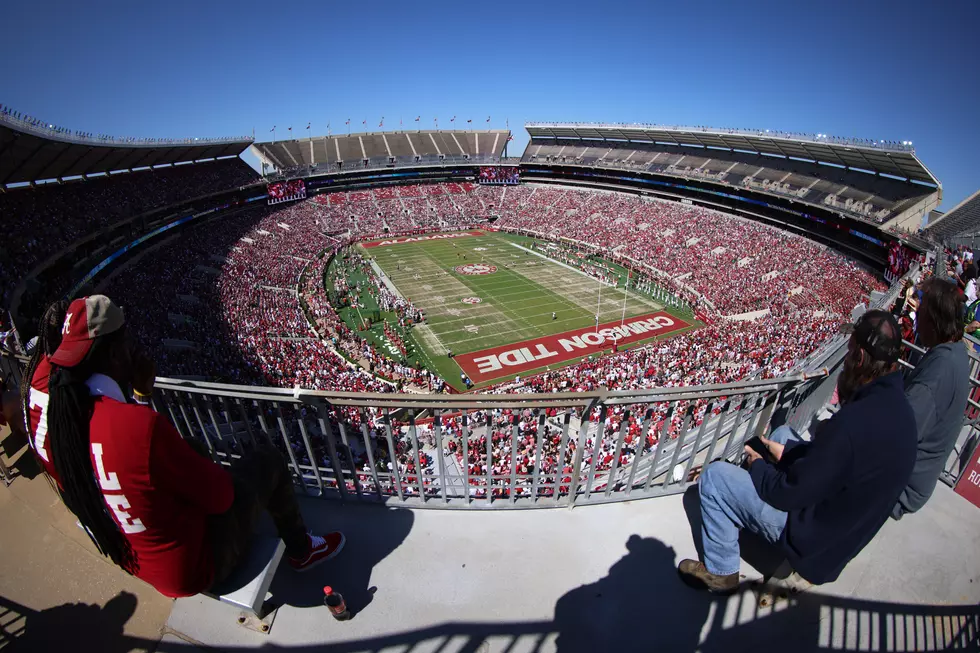
Understanding The NIL Rules for the Crimson Tide
College athletics changes forever Thursday, July 1. Even with all the information and speculation surrounding the permission of student athletes to profit from their name, image and likeness, there is a wealth of unknowns surrounding the biggest evolution is college sports history.
The NCAA decided within the past month to forgo its governance of this change, leaving the rules and stipulations up to the states that have already put laws in place to begin July 1 or later and for all other NCAA members to create their own solutions.
Still, the Alabama Crimson Tide is covered from both sides. The state of Alabama passed legislation on April 20 to handle NIL for the entire state. The University of Alabama created its own guidance system, in line with state law, called The Advantage. Tuesday evening, Alabama released further information pertaining to school rules surrounding NIL.
Beginning first with the state law, Alabama legislation covers many of the concerns fans, coaches and players have expressed over this new step in college athletics. The bill covers seven points of contingency to govern the athletic programs in the state.
The first point restricts athletes from signing contracts of any kind with any product or service that would be considered unsavory in the state's eyes, though grey areas will be left up to the discretion of the universities themselves.
"It allows a college or university to prohibit student-athletes from entering into contracts with brands or companies in the following categories: tobacco, alcohol, controlled substances, adult entertainment, casinos and entities that promote gambling activities, as well as “[a]ny entity or individual that … negatively impacts or reflects adversely on the postsecondary educational institution or its athletic programs,” in the “reasonable and good faith judgment” of the specific college or university."
The second prevents any under the table dealings, as schools must confirm and approve any sponsorship or endorsement contracts.
It requires student-athletes to disclose proposed contracts to their colleges or universities for review prior to execution and receipt of any compensation.
For example, a prospective business can't simply hand a player cash to wear apparel that refers to the business for a quick spot of attention. Every deal must be submitted to the student athlete's school for approval.
The third point prevents any conflict of interest between the school's existing or future contracts.
It allows a college or universities to prohibit student-athletes from entering into contracts that conflict with contracts held by the specific college or university.
For example, former Alabama quarterback Tua Tagovailoa signed an apparel endorsement with Adidas after declaring for the NFL Draft. Since Alabama is currently a Nike brand university, such a deal could not exist for Tagovailoa while he were a student that incorporates the logos and marks of Alabama nor while he's in uniform for a game. Whether a deal could exist provided these parameters are not broken isn't expressly answered by the University of Alabama or the state.
Speaking of logos, athletes in the state of Alabama may not use his or her school's copyright material for NIL purposes without prior written consent from the respective university. In the state of Alabama, schools are allowed to charge student athletes for the use of copyrighted material.
It prevents student-athletes from entering into contracts that would require the use of “any registered or licensed marks, logos, verbiage, or designs” of their colleges or universities without the express, written permission of the colleges or universities. The permission may include fees, for the use by the college or university, “by agreement of all parties.”
Recruiting has always been a tricky portion of college athletics to manuvre and with NIL compensation becoming a reality, the situation may not get any easier. While there's no true way to prevent schools from using obvious NIL advantages as a recruiting tactic, schools are forbidden by state law to directly use compensation as a means to recruit athletes to attend a school in Alabama.
It precludes colleges and universities from compensating their student-athletes for use of their NIL, including as a recruiting inducement or a reward for participation or performance.
In the same respect, boosters, alumni and other peoples directly involved with a university are forbidden from entering NIL compensation opportunities with college athletes.
It prevents colleges and universities and their officers, directors, and employees, along with sponsors and boosters, from compensating or directing compensation to student-athletes or their families for use of their NIL.
Finally, states must protect the best interest of its athletes by providing a means to educate players on the rules in place and how to properly manage their compensation in relation to their duties as student athletes.
It requires colleges and universities to “conduct financial literacy and life skills programming for student athletes.”
The University of Alabama's version of this final point is The Advantage program, which was announced May 4. Alabama athletics describes the program as "a comprehensive program that will provide Crimson Tide student-athletes with the education and tools necessary to build and elevate their personal brands."
While the initial unveiling of The Advantage doesn't directly reference NIL compensation, it does mention maximizing player marketability through social media platforms and financial literacy.
Alabama has since begun its efforts in educating its athletes on financial literacy. In early June, for example, the football team hosted Didier Occident of the Secure The Bag Financial Literacy Program to discuss these matters. Occident joined me on Off The Edge Monday to discuss what he told the Crimson Tide and how NIL impacts athletes across the country.

On Tuesday, the University of Alabama released a comprehensive guideline for athletes as well as an FAQ section to rolltide.com to expand upon the university's rules with respect to state law.
Most notably, the University of Alabama stressed that players may not be payed for athletic participation, for their success in athletics and that all compensation must be "commensurate with the market value." What exactly the market value is for any one player is something that we can only expect to learn in the coming months.
The first question in the FAQs does say a booster or fan may enter a contract with an Alabama athlete, though it must abide by the extent of the state law. However, no contract may apply to an athlete when he or she is conducting official team activities, including practices, organized scrimmage games (A-Day) or scheduled games and contests. These rules extend to the recruiting aspect as mentioned in the state law.
Furthermore, no employee at the University of Alabama may enter a contract with a student athlete.
The full Alabama state law on name, image and likeness compensation can be seen here.
The 2021 Alabama Football Schedule in Photos
More From Tide 100.9
